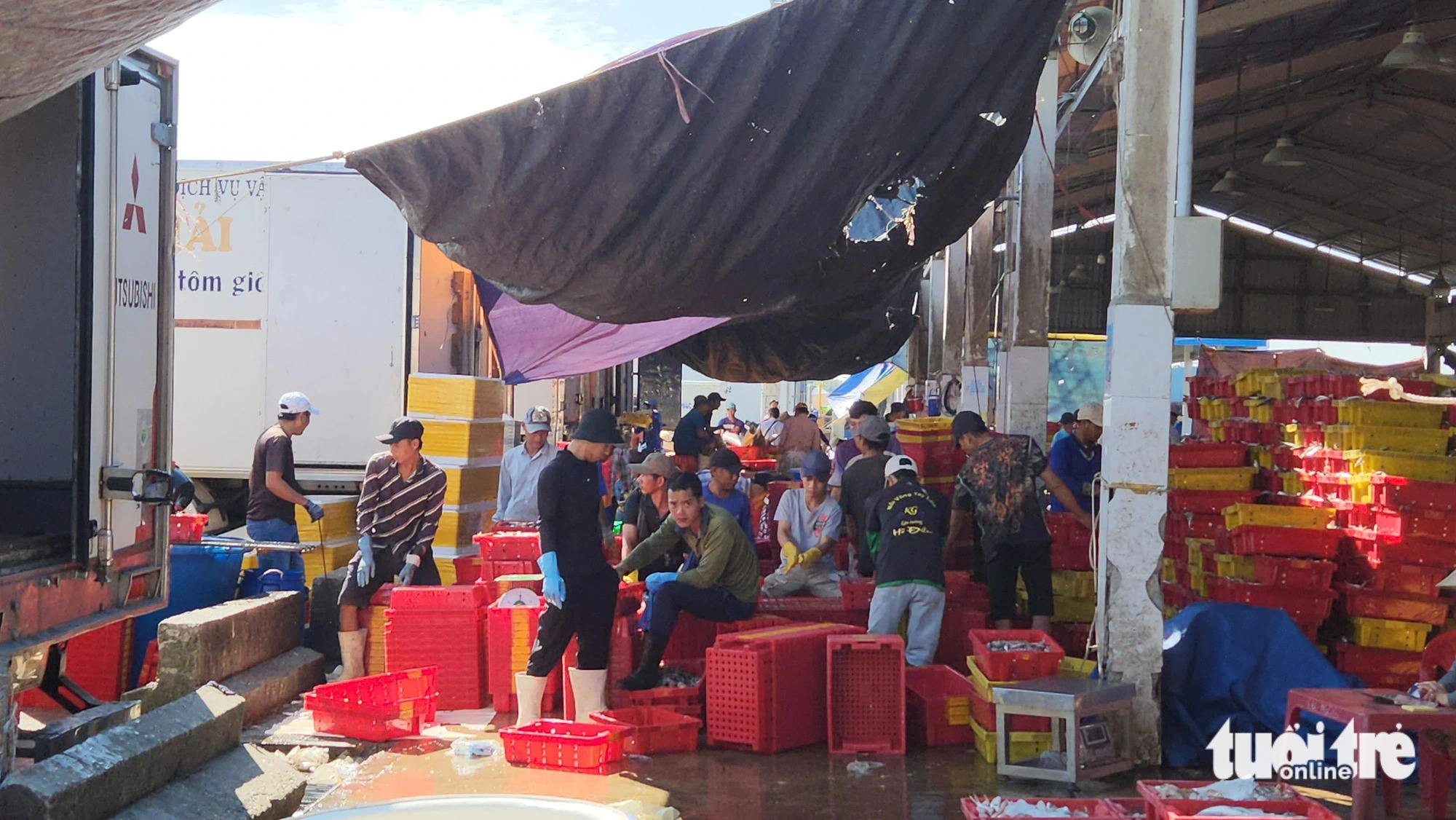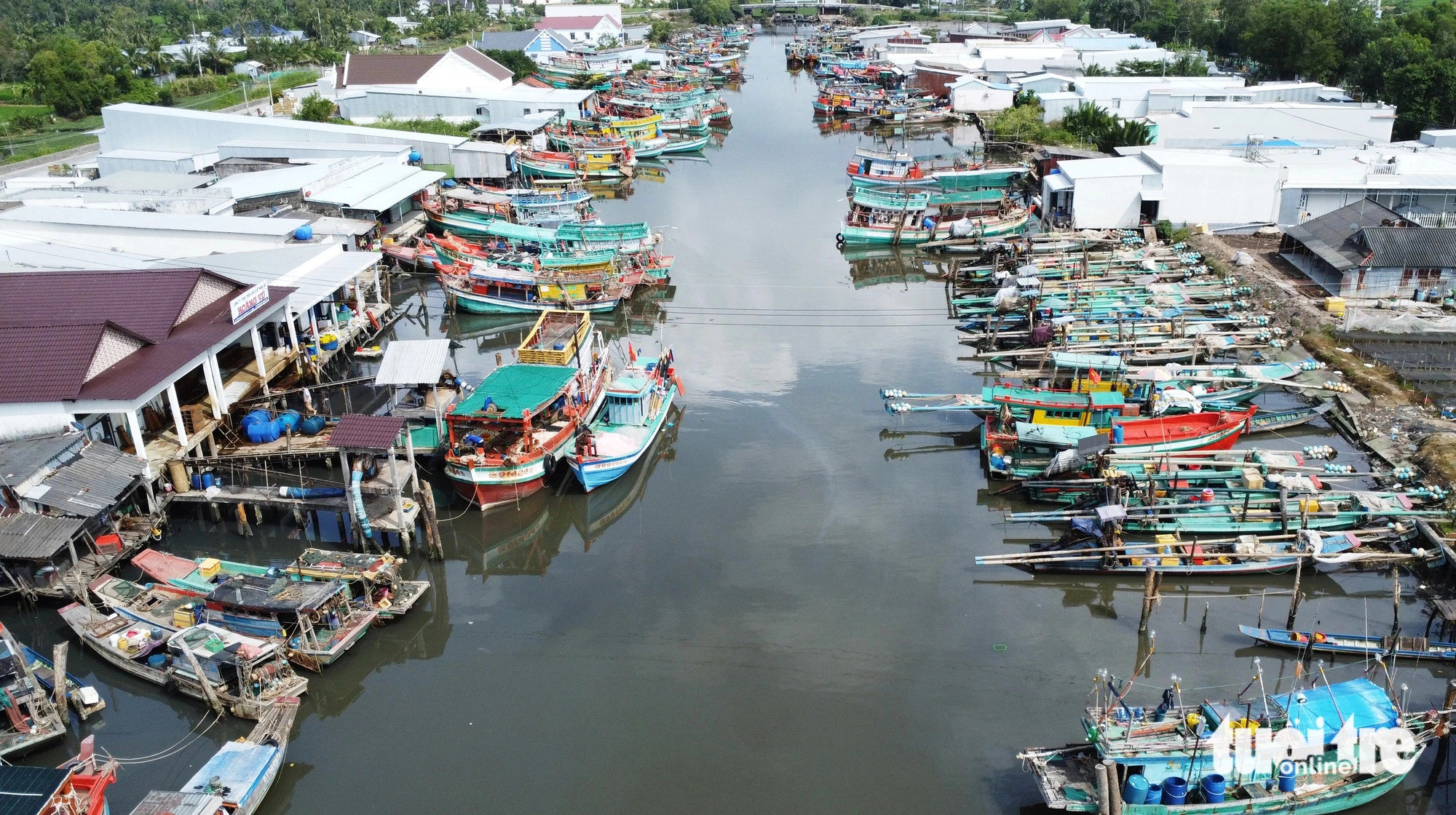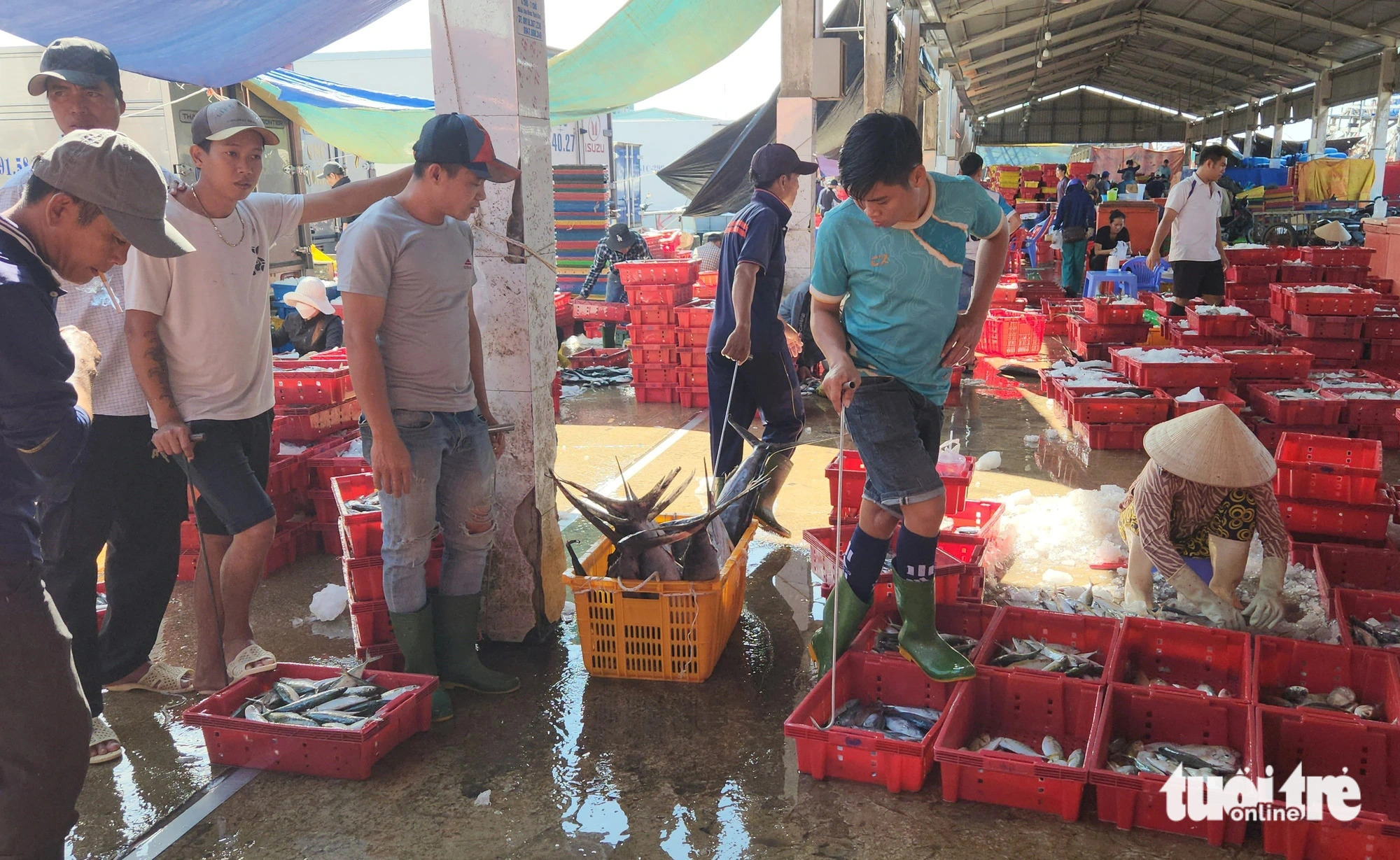Fishermen in southwestern Vietnam are grappling with declining fish stocks, soaring operating costs, and labor shortages, which have forced many of them to consider abandoning their boats and seeking alternative livelihoods as traditional fishing becomes unsustainable.
Truong Van Vung, a squid fisherman from U Minh District in Ca Mau Province, told Tuoi Tre (Youth) newspapers on Friday that shrinking marine resources and rising costs have made fishing unsustainable in recent years.
He elaborated that there are lots of nets and trawlers offshore, while nets cover every inch of inshore water.
Fishermen could not survive if there are no proper conservation efforts to let marine life recover.
Other fishermen at Song Doc fishing port echoed these concerns.
Le Van Tien, a resident of Tran Van Thoi District in Ca Mau, owns three offshore fishing boats but faces the prospect of leaving them idle.
Rising fuel and supply costs have increased the expense of a fishing 30-day trip from around VND200 million (US$7,850) to approximately VND250 million ($9,800).
Meanwhile, seafarer shortages and rising costs have forced fishermen to sell their catch at reduced prices, at VND18,000–19,000 ($0.7) per kilogram, compared to VND20,000–21,000 ($0.8) in previous years.
 |
| Fish trading activities at Tac Cau Fishing Port in Kien Giang Province, southern Vietnam on the first day of 2025. Photo: Buu Dau / Tuoi Tre |
Tran Minh Tri, a boat owner from Rach Gia City in Kien Giang Province, said that his fleet of four fishing vessels last year brought in only 20–30 percent of the fish they used to catch.
Each fishing trip costs over VND4 billion ($157,000), but the dwindling harvests have left most vessel owners without profits, Tri said.
He added that further fuel price falls in 2025 may offer some relief but emphasized the difficulty of finding crew members as a critical issue.
Fishing communities across Ca Mau reported a significant decline in labor availability.
Coastal districts such as Ngoc Hien, Nam Can, and Dam Doi recorded labor shortages of 20–30 percent, leaving many boats docked or operating at reduced capacity.
Harsh fishing conditions, safety risks, and unstable incomes have driven many seafarers to seek other jobs.
Their monthly earnings, once VND5-10 million ($196-393), now average just VND1-3 million ($39-117), which is insufficient to support a family.
To Van Chien, a fisherman from Ngoc Hien District, described the struggle to find crew members, recalling that it took just a few phone calls to recruit enough workers.
But now, it takes many weeks to find a crew, he said.
 |
| Some fishing boats in Ca Mau Province, southern Vietnam remain idle due to depleted fishing grounds. Photo: Thanh Huyen / Tuoi Tre |
Speaking to Tuoi Tre, Nguyen Van Lam, head of the Tac Cau Fishing Port Management Board in Kien Giang, said that overfishing and declining productivity have made the industry increasingly unprofitable.
To retain crew members, over 90 percent of boat owners have allowed their captains to sell fish directly at sea and divide the earnings with the owners over the past two years.
This practice has reduced fish landings at ports, with the Tac Cau port recording a drop of nearly 1,800 metric tons in 2024 compared to 2023, Lam added.
Like us on Facebook or follow us on X to get the latest news about Vietnam!



















































